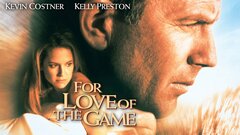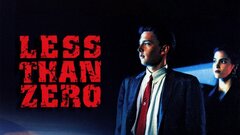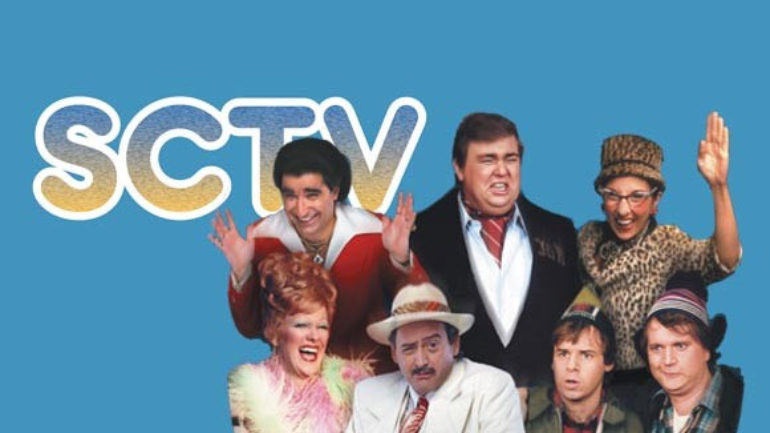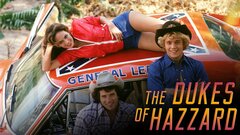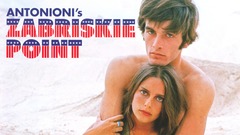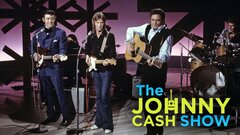A beloved and highly influential figure in pop and rock from the late 1950s until his extraordinary comeback in the late 1980s, Roy Orbison was a singer and songwriter possessed of a voice capable of projecting desire, loneliness and heartbreak on an operatic scale in such enduring hits as "Only the Lonely," "Oh Pretty Woman," "In Dreams," "Blue Bayou" and countless others. He was a second-string figure on the Sun Records label, the groundbreaking Memphis outfit that produced the early work of Elvis Presley, Jerry Lee Lewis and Carl Perkins, but found his niche after leaving for Monument Records in 1961. There, he brought together swelling orchestral strings and heavenly vocal choruses behind the formidable power of his voice, which could rise from a guttural growl to an angelic falsetto. Later, a generation of singers, from Linda Ronstadt and Bruce Springsteen to Chris Isaak and k.
d. lang, paid tribute with covers that led to a revival in the late '80s that encompassed countless live shows, re-recorded versions of his greatest hits, and The Traveling Wilburys, a Grammy-winning collaboration with George Harrison, Bob Dylan and Tom Petty. Though Orbison died at the height of his comeback, the incredible four decades of work he left behind represented some of the greatest, most passionate songs in the history of 20th century pop music.
Born Roy Kelton Orbison on April 23, 1936 in Vernon, TX, he was the son of Orbie Lee Orbison, a mechanic and laborer, and his wife, Nadie Shultz, a nurse. The Great Depression left the Orbison family in desperate need of work, and in 1942, they moved to Fort Worth. There, a polio scare forced his parents to send Roy and his older brother Grady back to Vernon to live with his grandmother. While there, Orbison composed his first song, "A Vow of Love." Music had been an inspiration and solace to him since the age of six, when his father gave him his first guitar. Afflicted by terrible eyesight, Orbison had also suffered an attack of jaundice, which left him with a sallow complexion and nearly white hair, which he began dyeing black at a very young age. Country greats like Hank Williams and Lefty Frizzell, whose slurred delivery would have a great influence on Orbison's own singing voice, were his first great influence, but after moving to West Texas, he was exposed to R&B, Mexican ballads and Cajun zydeco. After learning the basics of guitar from his father and uncle, Charlie Orbison, he performed in and won a radio contest, which led to a weekly stint as the host of his own show at the age of nine.
In 1946, Orbison was reunited with his parents, and the family moved to the remote oil town of Wink, TN. By the time he was 13 years old, he was leading his own band, the Wink Westerners, which began as a country band but soon expanded its repertoire to big band standards and pop songs of the day. The Westerners soon had their own weekly show on KERB radio in Kermit, TX and were a staple of area dances. One show yielded $400 for the group, which convinced Orbison that he could make a living as a musician, but following graduation from Wink High School in 1954, he enrolled in North Texas State College as a geology major to ensure that he would have a career if his entertainment dreams fell through.
By 1955, the Westerners were playing regularly in Texas as well as in New Mexico while appearing weekly on a Saturday afternoon country music show on KMID-TV in Midland, TX. By then, the group had added rock-n-roll numbers to their set list, including covers of "That's All Right," an early hit for Elvis Presley, whom Orbison had seen perform in Dallas. The rising popularity of rock-n-roll convinced Orbison to record a rockabilly-influenced number called "Ooby Dooby" for Jim Beck, who had helped Frizzell and Marty Robbins land contracts with Columbia Records. Though no such arrangement came from their recording session, it convinced Orbison that rock-n-roll might be their pathway to stardom, so they changed the name of the Wink Westerners to the more youth-friendly Teen Kings. Soon, they were appearing on another weekly music show; this time on the CBS affiliate in Odessa, which featured top name acts, including Presley and Johnny Cash, as guests. Orbison asked Cash for advice on releasing a record, and the singer gave him the phone number for Sam Phillips and Sun Records. However, the irascible producer hung up on Orbison during their initial phone call, stating that Cash did not run his record company.
In 1956, Orbison and the Teen Kings recorded a trio of songs, including a second version of "Ooby Dooby," for a new label, Je-Wel. The single made its way to Phillips, who summoned Orbison and the Teen Kings to make a record for Sun. Though by this time officially tired of "Ooby Dooby," Orbison dutifully recorded a third version, produced by Phillips, which rose to No. 59 on the Billboard Hot 100 in 1956. Orbison and the Teen Kings toured throughout the South to promote the record while frantically writing new material for a subsequent release. However, none of his follow-ups to "Ooby Dooby" found purchase on the charts. Neither Phillips nor Sun producer Jack Clement had much faith in Orbison's talents, and by 1957, he had parted ways for the label. For a while, he worked as a songwriter, scoring a hit in 1958 with "Claudette," a ballad inspired by his then-wife of the same name, which was the B-side for the Everly Brothers' "All I Have to Do is Dream." But subsequent writing jobs with the Acuff-Rose music publishing company and recorded efforts for RCA Victor failed to produce any positive results, leaving Orbison to live largely hand-to-mouth until 1960.
Acuff-Rose president Wesley Rose sent Orbison to Monument Records, where he recorded several compositions, including "Uptown," a single he had penned with songwriter Joe Melson, who would subsequently share credits on his most successful early '60s sides. The song hit No. 72 on the Billboard Hot 100 and re-ignited Orbison's music career. However, he had no interest in returning to the raucous sound of his Sun Records sides. The decline of rock-n-roll in the early 1960s had prompted many performers, including Presley, to embrace a more wholesome, pop-influenced approach, focused on sweeping ballads, cleaner production and a sonic mix that included strings and vocal choruses. Orbison himself found this style preferable, as it focused on what he considered his two greatest attributes: his soaring, wide-ranging baritone, and his songwriting.
In 1960, Orbison recorded his first effort in what would become his trademark post-Sun sound: "Only the Lonely," an epic, haunting ballad filled with lush strings and built around Orbison's voice, which swooped from the bottom register to an astonishing falsetto that earned him comparison to opera singers. Presley, whom Orbison initially hoped to record the song, was reportedly so impressed that he bought a number of copies to give to friends. "Only the Lonely" immediately rose to No. 2 on the Billboard singles chart and minted Orbison as a pop star. After touring for three months with Patsy Cline, he returned to the studio to record a brace of new songs, including "Blue Angel" and "I'm Hurtin'," both of which performed respectfully on the charts. But neither could compare to 1961's "Running Scared," which became his first No. 1 hit in America.
Built around a bolero-style song structure and featuring no choruses, the highly emotional track built slowly but dramatically over an orchestral accompaniment to a vocal climax that outshone the falsetto break in "Only the Lonely;" reportedly, the note caused the studio musicians to stop playing and wonder in amazement at Orbison's vocal abilities. It was soon followed by a string of gorgeous, heartbreakingly vulnerable ballads like "Crying," which reached No. 2, "In Dreams," and "Blue Bayou," as well as a handful of tough, rocking numbers like "Dream Baby (How Long Must I Dream?)" and "Candy Man," which, while effervescent, still featured an undercurrent of longing and loneliness. Orbison complemented his brooding, lovelorn songs with a sartorial style that favored black clothing - not unlike his old Sun labelmate, Johnny Cash - and dark sunglasses at all hours. The latter was more by accident than choice: having lost his thick-lensed eyeglasses on a flight, he donned his prescription Wayfarers for a performance, and the look stuck. The sunglasses were also helpful in disguising Orbison's painful shyness and severe stage fright.
In 1963, Orbison replaced guitarist Duane Eddy on a tour of the U.K. with the Beatles, who at the time, were an unknown quantity in the United States and much of the world. Dismayed at being reduced to the opening act at the height of his popularity, Orbison delivered what audiences would describe as a riveting performance of his material without the physical and verbal histrionics of other rock acts; he would, in fact, remain stock still throughout his entire set and simply mesmerize listeners with his voice. The tour made Orbison lifelong friends with John Lennon and especially George Harrison, who would be instrumental in his 1980s comeback. Orbison remained on tour throughout the remainder of the year, traveling to Canada, Australia and New Zealand with the Beach Boys and the Rolling Stones, both of which marveled at his stage presence.
Upon his return, he teamed with Texas musician Bill Dees to pen his signature song, an uptempo rocker called "Oh Pretty Woman" which featured the perfect apotheosis of his singing personas. His vulnerable side was clearly evidenced by the song's wistful lyrics and chorus, while his tougher side was heard in its stuttering riff, as well as his extemporaneous utterances - an animal growl he copped from a Bob Hope film, and a throwaway "Mercy!" that covered for a blown note. An acknowledged influence on the Rolling Stones' "(I Can't Get No) Satisfaction," the song shot to No. 1 on the U.S. charts, where it resided for 14 weeks. It was an even greater hit in the U.K., where it remained in the top chart slot for 18 weeks and made Orbison the only American artist to enjoy a No. 1 single there during the heyday of the British Invasion.
Unfortunately, "Oh Pretty Woman" was the beginning of the end for Orbison's career for decades, as well as the first of countless personal and professional tragedies that plagued him throughout the 1960s. His marriage to Claudette ended in 1964 after it was revealed that she was carrying on an affair with the contractor who was building their home in Tennessee. They would reconcile the following year, but then Orbison's recording contract was sold to MGM Records. His first single for the new label, "Ride Away," broke the Top 40, but subsequent efforts barely maintained a hold on the singles charts at all. By 1966, his career was in decline, and his personal life was sent into a tailspin when Claudette was killed in an accident while she and Orbison were riding motorcycles through Bristol, TN and she was hit by a car.
He threw himself into the production of a period musical drama called "The Fastest Guitar Alive" (1967), which starred Orbison as a Confederate spy protecting a gold shipment during the Civil War. However, the film was ludicrous, as evidenced by Orbison's guitar-cum-rifle, and his performance was lifeless. It failed miserably and canceled his five-picture deal with MGM. Two years later, he received word during a tour of England that the Hendersonville home had burned to the ground, killing two of his children. He would later sell the property to Johnny Cash, who planted an orchard there. The sole bright spot of the period was Barbara Jakobs, a 17-year-old German girl he met in England. The pair would marry in 1969, and produce two sons in 1970 and 1974. Meanwhile, as the 1960s faded into the 1970s, a new generation of artists who had been moved as teenagers by Orbison's classic hits was covering them as part of their own music careers. The evergreen hit "Love Hurts," which he covered in 1961, was revived by Gram Parsons and Emmylou Harris and later by hard rockers Nazareth, while Sonny James took a cover of "Only the Lonely" to No. 1 on the country charts in 1969. Bruce Springsteen and the Eagles featured his hits in concert, and Linda Ronstadt scored a No. 3 pop hit with her take on "Blue Bayou." By the late 1970s, Orbison had returned to the charts via a collection of his greatest hits, and in 1980, he won a Grammy for "That Lovin' You Feelin' Again," a duet with Emmylou Harris.
Orbison would spend the next decade performing the near impossible: climbing to the top of the charts after nearly 20 years out of the limelight. After winning a second Grammy for a remake of "Crying" with k.
d. lang in 1987, he received a massive career boost from one of the most unlikely of sources: David Lynch's perverse, violent thriller "Blue Velvet" (1986), which featured Dennis Hopper as a psychopathic gangster obsessed with, among other things, Orbison's "In Dreams." One memorably surreal sequence featured Dean Stockwell, as an effeminate drug dealer, executing an overwrought lip-sync performance to the song. Orbison was initially dismayed by the inclusion of his song in the film, but eventually came to appreciate the picture and even allowed Lynch to co-produce a remake of the song for his 1987 collection In Dreams: The Greatest Hits.
That same year, Orbison's long career was finally validated by his induction into both the Rock and Roll Hall of Fame and Nashville Songwriters Hall of Fame. Bruce Springsteen provided the glowing speech for the former ceremony, and later joined Orbison, as well as a stellar lineup of guest musicians, for "Roy Orbison: A Black and White Night," a live performance filmed at the Coconut Grove in Los Angeles that became a top-selling video. He would later conclude the year by teaming with old Beatle buddy George Harrison, as well as Bob Dylan, Tom Petty and Electric Light Orchestra's Jeff Lynne for Traveling Wilburys, Vol. 1, a loose, rootsy collection of collaborations and solo tunes by each musician, presented as a faux reunion of a far-flung family act. The album reached No. 3 on the U.S. charts, eventually spending 53 weeks there, and earned a Grammy for Best Rock Performance by a Duo or Group.
Having revived his career beyond his or anyone's wildest imagination, Orbison began recording his first album of new material in decades. A star-studded lineup of musicians signed on to pay tribute, including Lynn, Petty and members of the Heartbreakers, and Bono of U2. After completing work on the record, titled Mystery Girl, he traveled to Europe to perform and accept an accolade at an award show. After giving numerous interviews, he flew to Boston, MA, where he performed again, despite appearing quite ill. He rested briefly at his home in Hendersonville before jetting back to the U.K. to shoot two videos for the Traveling Wilburys. On Dec. 6, 1988, he spent the day with his sons, then dined with his mother. That evening, shortly before midnight, Orbison suffered a heart attack, which claimed his life. His passing was eulogized by the international press in reverential tones, and tributes poured in from musical peers the world over. Mystery Girl was released in 1989, and landed a Top 10 hit in America with the stately "You Got It," co-written by Lynne and Petty. He was inducted posthumously into the Songwriters Hall of Fame that year, and received his star on the Hollywood Walk of Fame in 2010. His widow, Barbara Orbison, kept his legacy alive with stellar reissues of his early recordings, as well as DVD and CD presentations of performances from his final, triumphant years.
By Paul Gaita
























